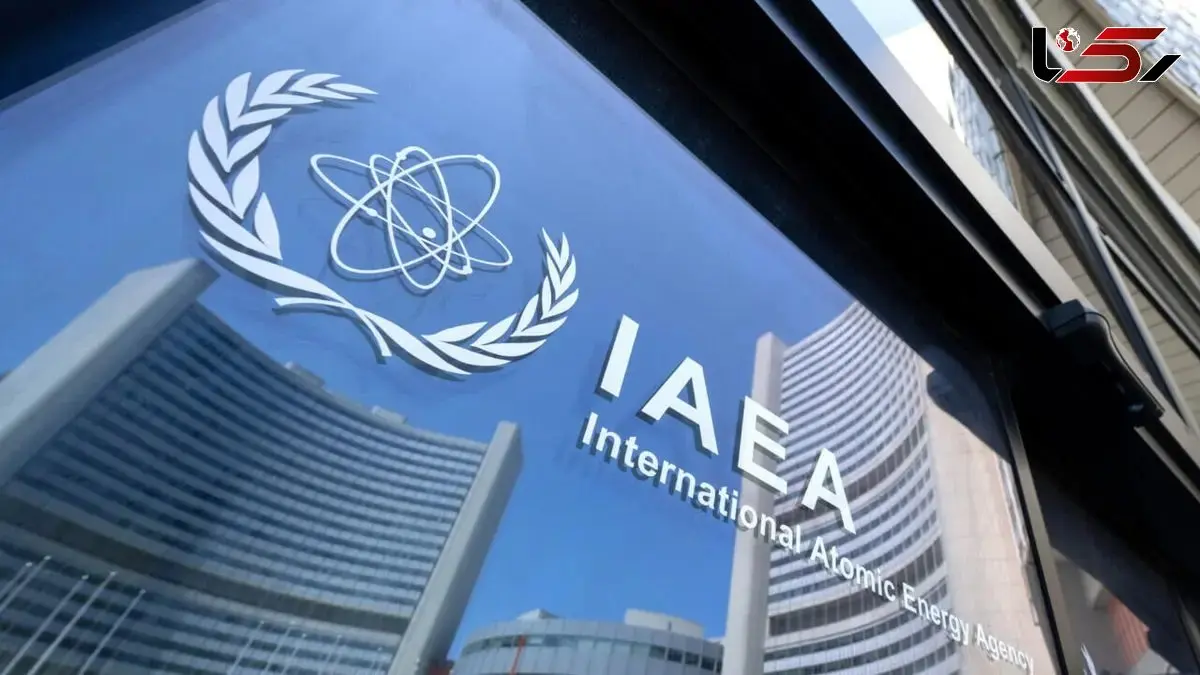Consequences of an IAEA Board of Governors Resolution Against Iran / The Board’s Resolution Is Not Merely Technical
Rokna Political Desk: As the three European countries and the United States seek to pass an anti-Iran resolution at this week’s meeting of the IAEA Board of Governors, Gharibabadi says that if such a measure is adopted, Iran will reassess its policies regarding cooperation with the Agency and the Non-Proliferation Treaty.

According to Rokna, the meeting of the IAEA Board of Governors will be held from Wednesday to Friday, November 19 to 21 (Aban 28 to 30). At this session, the three European countries, together with the United States, have once again adopted a hostile stance and drafted a resolution concerning Iran’s nuclear program.
The basis of this draft is a recent report by IAEA Director General Rafael Grossi on the status of Iran’s nuclear program, in which Iran is asked to halt uranium enrichment and reprocessing, including activities related to research and development, implement the Additional Protocol, and provide complete information on the status of enriched uranium stockpiles and safeguarded facilities to the International Atomic Energy Agency.
If this resolution is adopted at the upcoming meeting of the Board of Governors, it will be the sixth resolution issued since the United States’ withdrawal from the JCPOA.
The fifth anti-Iran resolution was adopted on June 11, one day before the Israeli regime’s military attack on Iran, with 19 votes in favor. Burkina Faso, China, and Russia voted against it, and 11 countries abstained. In response, Mohammad Eslami, head of the Atomic Energy Organization of Iran, ordered the establishment of a new enrichment center at a secure site and the replacement of first-generation centrifuges at the Fordow enrichment facility with advanced sixth-generation machines.
In this regard, Kazem Gharibabadi, Deputy Foreign Minister for Legal and International Affairs, stated on November 15 that Iran’s situation after such a resolution would be significantly different, saying: “If they give no weight to engagement and cooperation, Iran will fundamentally review its own approaches, and this review will not be limited to cooperation with the Agency. Iran must re-evaluate its policies in the areas of interaction with the Agency and issues related to the Non-Proliferation Treaty after the issuance of this resolution.”
The Deputy Foreign Minister added: “We hope they act rationally and do not formally introduce this resolution, but if they do so, Iran will undertake fundamental revisions in its own policies.”
This senior Iranian diplomat stated that “this resolution will not have the slightest effect in terms of exerting pressure on Iran, but it shows that they do not value engagement and cooperation, and therefore Iran is entitled to reconsider its policies toward international organizations and its international commitments.”
The Board of Governors Resolution Is Not Merely Technical
Meanwhile, Foreign Ministry spokesperson Esmaeil Baghaei, in an interview with IRNA, described the approach of these three countries as “confrontational” and said that the measure they intend to pursue at the Board of Governors is nominally a technical resolution, but “we know that this resolution is not merely technical and functions far beyond that.” He added that they seek to replicate at the IAEA what they previously attempted at the UN Security Council under the pretext of reactivating cancelled resolutions.
According to Baghaei, their repeated claims of being prepared for dialogue and negotiation are not genuine, and such actions are entirely inconsistent with their alleged willingness for diplomacy on Iran’s nuclear issue.
Mohammad Eslami, head of the Atomic Energy Organization of Iran, also said yesterday that the draft resolution presented to the Board of Governors by the three European countries and the United States was a repetitive measure aimed at political pressure and stressed that Iran would continue on its path.
He further stated: “It is regrettable that the three European countries and the United States continue the same unilateral and coercive approach against Iran and have once again placed provocative and unrealistic language in the form of a draft resolution on their agenda.”
Earlier, Reza Najafi, Iran’s ambassador and permanent representative to international organizations in Vienna, had emphasized Iran’s right to respond appropriately to any unlawful and unjustified action taken by these countries.
Additionally, Amir Saeed Iravani, Iran’s ambassador and permanent representative to the United Nations, stated at a UN General Assembly meeting—responding to Grossi’s report—that such reports must always remain professional, fact-based, and free from any political influence. He declared explicitly: “Iran will never yield to threats or coercion. Our response is based solely on respect, rule of law, and equality, and military aggression and economic terrorism will never force Iran to relinquish its legitimate rights.”
Send Comments